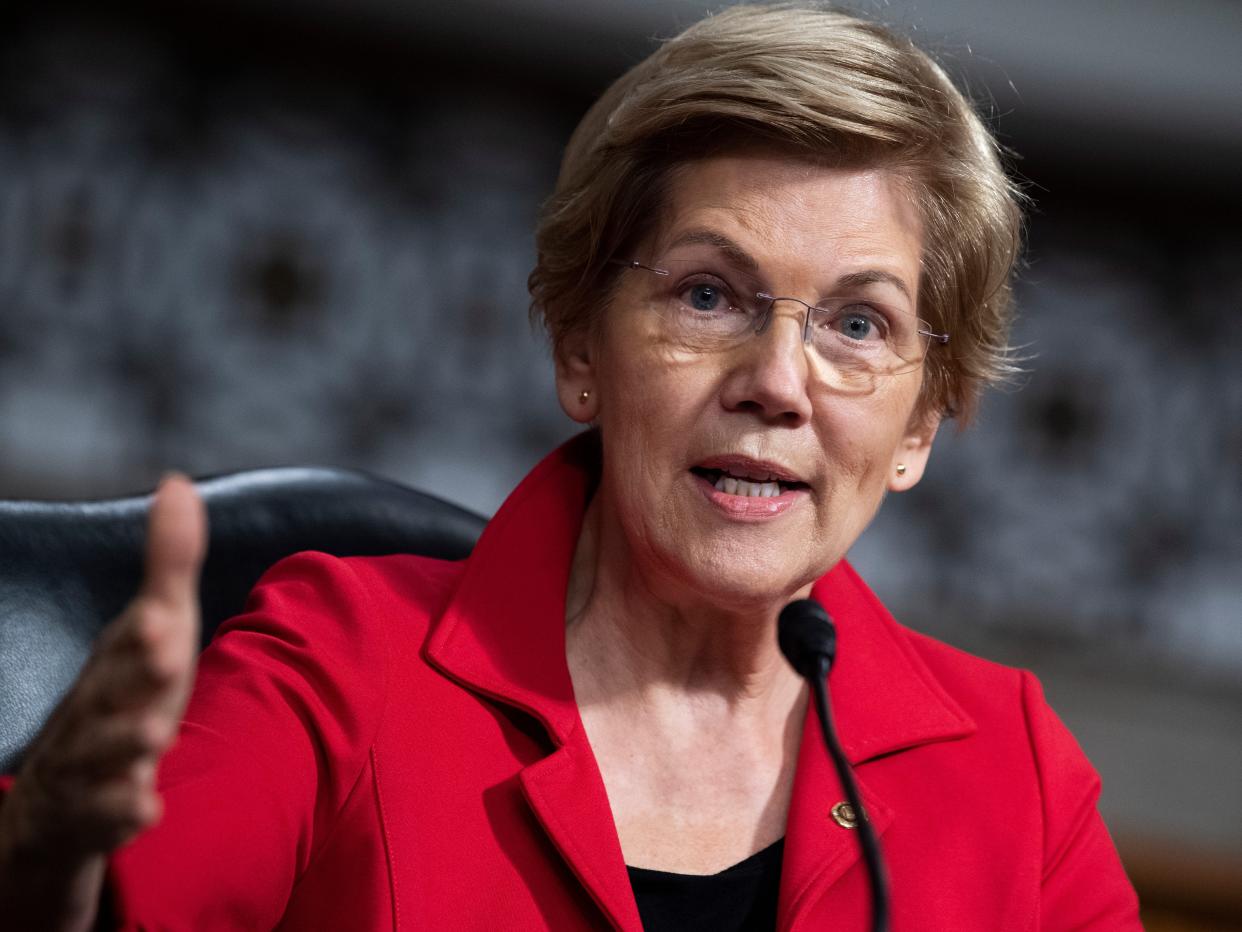Elizabeth Warren wants Biden's Education Department to go beyond broad student-loan forgiveness and crack down on the institutions that cause borrowers' debt loads to spiral

Sen. Elizabeth Warren sent a letter to the Education Department with recommendations to better protect student-loan borrowers.
She urged stronger oversight on for-profit institutions that engage in predatory behavior.
She also recommended oversight for OPM providers, and quick implementation of the gainful employment rule.
As millions of student-loan borrowers wait for debt relief, Sen. Elizabeth Warren wants to make sure President Joe Biden isn't letting protections for those Americans fall off his radar.
On Monday, the Massachusetts Democrat sent a letter to Education Secretary Miguel Cardona — exclusively viewed by Insider — regarding efforts the department should take to ensure borrowers are protected from predatory behavior. After Biden announced up to $20,000 in student-debt relief for federal borrowers in August, he also outlined steps the department will take to hold potentially predatory programs accountable for actions that could load students up with debt, and Warren has some ideas on how to enforce that oversight.
"As I offer support for your effort to identify low financial value programs that saddle students with mountains of debt that they have little hope of repaying, I also write to bring to your attention several other areas where the Department can and should strengthen accountability and oversight of institutions of higher education that too often leave students with insurmountable debts," Warren wrote.
For-profit crackdown
Her recommendations focused on bolstering oversight over for-profit schools and ensuring predatory schools do not have access to the federal financial aid program. As Warren wrote in the letter, for-profits "have a long record of engaging in deceptive and manipulative practices and aggressively recruiting vulnerable students into low quality, high-cost education and training programs that leave students with high amounts of student loan debt and a greater likelihood to default on their loans."
As Insider previously reported, for-profit schools have been under scrutiny by lawmakers like Warren for decades over allegations of misleading students into taking on more debt than they can afford to pay off. Biden's Education Department has reformed the borrower defense to repayment, which are claims students can file if they believe they were defrauded by the school they attended. If approved, their student loans would be discharged.
In her letter, Warren urged Cardona to ensure predatory schools cannot receive federal aid. She also reiterated her calls that the department hold executives of for-profit schools liable for costs that would normally fall on taxpayers when they shut down. The department released guidance earlier this month saying that would hold executives of private colleges financially liable for the cost of unpaid debts defrauded students took on.
Predatory tech companies that surge student debt
Warren also requested Cardona keep an eye on Online Program Management (OPM) providers — a rapidly growing industry that works with at least 550 colleges in the US to support online programs, including courses and recruitment efforts.
A 2011 loophole in the Higher Education Act has lawmakers concerned that OPMs are taking advantage of partnerships with colleges to prey on students. Specifically, the 2011 guidance allowed OPMs to collect 40-60% of a student's tuition as long as it provides a range of services, like marketing and advertising, and that the school's payment to the OPM covers all of those services.
"This loophole incentivizes OPMs to aggressively recruit students in order to boost their revenue, including calling prospective students multiple times a day, encouraging students with low academic GPAs to apply and take out federal Grad Plus loans that allow students to borrow as much as colleges charge," Warren wrote.
Borrower protection group Student Defense recently submitted a public comment to the Education Department saying that the loophole is illegal and urged it to rescind the 2011 Dear Colleague letter on OPMs.
"The gaps in online program management accountability are the next frontier in program oversight and accountability," Student Defense Litigation Director Eric Rothschild said in a statement. "These programs can increase access to higher ed, but too many students have been defrauded by the misleading marketing of companies whose profits depend on enrolling as many students as possible at all costs."
Prevent students from enrolling in programs they can't pay off
Former President Barack Obama established the gainful employment (GE) rule in 2014, which cut off federal aid for schools that offer career and certificate programs that left students with a large of amount of student debt compared to their post-graduation earnings. It aimed to prevent students from borrowing federal loans for programs they probably wouldn't be able to pay off.
But in 2010, former President Donald Trump repealed the rule, and Biden's Education Department pushed off reinstating it until 2024. Warren wrote in her letter that she is "concerned about the ongoing delays in its implementation."
"Further delay of the GE rule only will prolong the timeline for when poorly performing institutions could face penalties, exacerbating these institutions' harmful impact on students who are enrolled in these schools," she wrote, urging the department to start "building the infrastructure needed" to get the rule in place as quickly as possible.
This isn't the first time Democrats have urged quicker action on protecting students from enrolling in programs they might not be able to pay off. In February, Warren, along with Sen. Bernie Sanders and Senate Majority Whip Dick Durbin, sent a letter to Under Secretary of Education James Kvaal urging him strengthen protections for students that enroll in "low-financial-value programs," which could be done by reinstating gainful employment.
Read the original article on Business Insider

